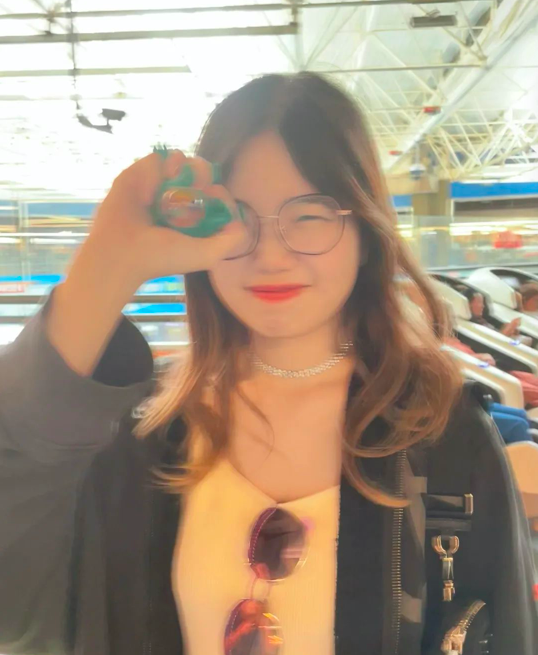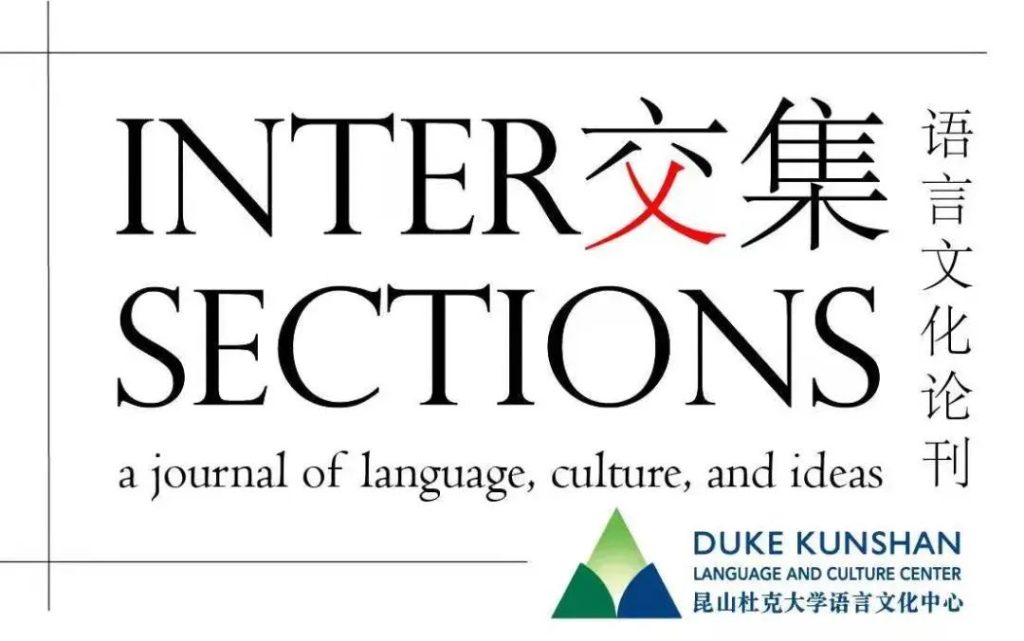
Autobiographies of Language Learning
LINGUISTIC LANDSCAPES
Sissi (虞悦) is a sophomore studying Media and Arts at DKU. During her free time, she enjoys listening to music, traveling and visiting art galleries..

Ever since the first day of primary school, I have known no language other than English and Chinese. Perhaps Shanghainese should be added to the list but, considering I dare not “show off” this language in front of people other than my parents, I will cross it off. In this paper, I will guide you through the three phases that have made up my English learning journey.
When I was a kindergartener, my path in English learning started off roughly. My mother signed me up for a class that was targeted to elementary school students. I suffered, obviously. Every time there was a mid-class break, it was great news for the other students, but a humiliating time for me. Before being released for break, we had to complete these inhumane pop quizzes. Supposedly one should master all the vocabulary taught in the class to complete the quiz and while all my classmates did, it wasn’t the case for me. I just couldn’t remember all the pronunciations and I couldn’t see how the red, round, edible thing called “pingguo” in Chinese would be linked to the word “apple.” Looking back, though, despite the fact that it was brutal, this phase might have been very helpful in building the foundation for my English today. It helped with my pronunciation and sense of language by immersing me in an English-speaking environment for two hours every week.
The second phase was no better. I was admitted into the most prestigious junior high school in Shanghai. It’s famous for the teachers being astoundingly dedicated, and let me tell you, they were. This particular English teacher of mine, who I will later refer to as Ms. Sheng, showed me how cruel language learning can be. She was famous for her life-threatening dictations. I assume dictations get their name for being conducted by dictators. After every English class, we were supposed to take notes on all the grammar points she had presented. These points were the focus of the dictation. You might think it perfectly normal, but the way Ms. Sheng framed the sentences in the dictation was beyond our imagination. For instance, if during one class we learned two words, “whiz-kid” and “Europe,” and two phrases, “hear from” and “look forward,” then the next day we could expect our dictation to have sentences like: ‘That whiz-kid from Europe looks forward to hearing from you soon.” The sentences didn’t necessarily have to make sense as long as they contained as many points as possible. I would always get detentions for failing the dictations, which I resented. However, I admit that the process of repeating the language points over and over again did strengthen my sense for the English language. Thus, I send a heart-felt thank-you to you, Ms. Sheng.
Finally, we arrive at the joyful phase three. At this point it was as if I had become immune to the hardships and anxiety that came with language learning. It was then that I met my guardian angel. I’ll call him XP for the mystery. During the first class he said that he wanted us to be friends. No other teacher of mine had ever said that before. Those words turned out to be more than just courtesy. He was the kind of teacher with whom you can talk about anything, and even share comments on TV shows. Other than caring for us like a friend, the amount of academic knowledge I gained from him was also enormous. It was because of him that I developed a genuine love for the English language. He once said that there’s beauty in each language and all we have to do is feel it. I am not sure if I will ever get the privilege of feeling the beauty of the English language, but I sure gained a lot of joy out of mastering it under his guidance.
After I graduated from junior high, and XP was no longer my teacher, I continued the learning journey alone. Having developed the enthusiasm for the language, I found it quite easy to keep learning. I took a TOEFL class and while I was completing the writing homework, I realized that I was running short on vocabulary. I tried to fix the issue by reading English vocabulary books, but that was of little help. I then had the idea of increasing my lexical repertoire by watching American TV shows. I would watch the same episode repeatedly until I mastered every word in it. This strategy worked out well, helping me get straight A’s in senior high school English, and eventually score 141 in the English Gaokao.
In this never-ending journey of English learning, I now find myself at DKU, honored to be in an English-speaking environment surrounded by extraordinary classmates and professors. The English-speaking environment was in fact the main reason as to why I chose DKU in the first place. I reckoned I would lose part of my English abilities if I were in a regular Chinese university. But, being an American University in China, DKU gives all students the chance to be immersed in an English-speaking environment while completing their undergraduate studies. So, as I continue to pursue my academic interests, I am excited to also be able to continue my language learning journey.
About the Author:
Jiayu Shi (石家羽) is a sophomore from Wuhan, Hubei Province, majoring in Media and arts. In her spare time, she loves to listening to music, cycling and freelance writing. Jiayu wrote this article while on EAP 101A as a periodical summary of her language learning journey.
I began to learn English as a baby girl in kindergarten. At that time, there was no English class in my kindergarten, but I was enrolled in a professional language school for systematic English-learning. Looking back on that experience, I genuinely want to express my gratitude to my parents for making this choice. Never would my passion for languages be developed so quickly if I hadn’t learned English in my early childhood.
Those initial memories in language school opened up a brand new perspective for me. It was the experience there that constructed my understanding of a new culture. My teacher used to let us play a “music game.” She would play a piece of Western pop music, and we were supposed to add the missing lyrics into the blanks. I remember one of the songs was “God Is a Girl,” which made a great stir at its debut. Though the blanks were rather simple, mostly verbs like “believe” or “receive,” my classmates and I had so much fun. We could enjoy those beautiful melodies, simultaneously polishing our listening and writing skills. This unique experience laid a foundation for my passion in English, as well as English songs. My life, since those moments, has been intertwined with language and music.
As I entered primary school, followed by junior and senior high, my English improved step by step. To be more precise, merely my exam-oriented English improved. In other words, I didn’t witness any dramatic progress in my oral English during those years. The most frequent English-related activity I had in high school was the exams. We read textbooks in class, from which we could grasp only a pitiful number of words. After class, we were pushed in the endless flow of exams and test papers. The most unbearable thing was that students should memorize fixed sets of phrases for writing narratives in order to get higher scores. I felt as if my words never resonated in my mind as a writer, and the lingering shadow of that exam-oriented education thwarted me repeatedly. I did try to ask my teacher if we could do something different for learning English and even recommended the lyric game which I played in early years. Ironically, no matter how sincere my tone was, the everlasting answer was a simple “no.” I ultimately gave in, succumbing to the sea of exams.
Sick and tired of taking English exams at school, I tried to get myself immersed in English on my own. Some friends and I created a group made up of music lovers. Not only did we share our music preferences, but we also discussed the lyrics. The most impressive lyric to me was “I don’t trust nobody and nobody trusts me,” from “Look What You Made Me Do.” The first half of it sounded a bit bewildering for us then. We all agreed that it should be “anybody,” rather than “nobody.” After checking online, we learnt that it was something beyond grammar, meaning to strengthen the tone. Every time I learnt something new from those songs, a sense of delight would brim over my heart.
Although textbooks were somewhat useful, watching animations proved to be a quicker way of learning. In those days in Japan in 2018, there in Sapporo, I shared a comfortable chat with the owner of a local restaurant. I felt lost when looking at the menu, as it was filled with katakana (片假名) which I could not understand. The owner soon came up to me, asking “わかっるですが” (Can you understand)? I replied, in a split second, “わかっらない” ( I can’t). She gave me a quick nod and offered me another menu, which was filled with illustrations. This encouraged me a lot, and I took the initiative to chat with her without thinking twice. It turned out that the owner was also talkative, and kept asking me where I had been already, and what was my plan for this trip. We chatted completely in Japanese. It was not quite a long conversation, but from it I gained more confidence in speaking Japanese. I owe my success in having this conversation to all of the animation I have ever watched. Seriously, I doubt whether I would have dared to start a chat with a native Japanese speaker if I had only been glued to textbooks.
It seems that I have utilized diverse tools and strategies to learn languages. Among them, I’d put “listening to music” on the top of the list. When listening to music in a different language, I absorb myself in the rhythm and purely enjoy the language from the bottom of my heart. That accounts for my incredible speed of learning a song in a foreign language and the language itself. Only if you start to appreciate a different language can you have the chance to master it.
I feel inclined to entitle this autobiography “Journey through Languages” rather than “Learning Languages.” Every experience I went through with languages is precious and irreplaceable, and together they continuously encourage me to march further in this route.
About the author:
Yinan Zhang(张忆南) is a philosophy student at Wuhan University’s Hongyi Honor College. Her current academic interest is in philosophy of language and social science. She participated in DKU Fall 2021 undergraduate exchange program and wrote this LLA in Professor Amanda’s WOC104.
Pictures taken by Yinan in Wuhan University
It is not easy for me to summarize all of my language learning experiences into these short paragraphs. I might not perfectly remember every detail, and some of the ones written here may lack accuracy. Nonetheless, I still believe it is important to write about the fragments that I recall from this long journey.
I was born in Foshan, a city on the southern coast of China, where the natives speak Cantonese. I left there with my parents at the age of five. Before my family settled down in Jiangsu Province in 2011, I transferred between schools in different cities several times. As a result, I was exposed to several different systems of language education.
My first kindergarten was a bilingual one, where English was taught through singing songs like Rain, Rain, Go Away and playing games with flashcards. One scene from the few memories I have of that period was when my teacher, a strong and tall man, holding a picture of a yellow cake with holes, told us that it was called “cheese.” I had never seen anyone eating weird “cheese” things like that except in the Tom and Jerry cartoon. Another thing that impressed me was a cartoon about “Jesus Christ,” a young man I had never heard of. We all sat silently as we watched him bleed through the screen. There were no concepts of diversity of culture in my 4-year-old mind, but I began to vaguely understand that there were some things that existed only “in other languages,” words that only made sense in a world distant from my daily life as a child. This perception continued to stay with me and grow in the following years of my language learning journey. It felt as if other languages were like capsules, held inside an unknown world.
Once the period of moving around with my parents had ended, my education experience became similar to that of most teenagers in China. I went to a primary school where English was taught in a very traditional way. We were asked to copy vocabulary lists two to three times with the Chinese meaning and we practiced reading the textbook aloud every morning. The method we were recommended to use for practice shocked me a bit: we were supposed to read the words twice, first with a rising tone, and then with a falling tone. Some of my classmates treated practice like a great performance, during which people around them could even feel the wind blowing in and out of their chests as they spoke. For writing practice, we seldom wrote stories or any accounts in the form of long paragraphs. In the exercise textbook, sentences often appeared individually and independently. For example, if the first line read “There are five apples on the table,” the second could be “There is a man in the classroom” instead of a connecting one such as “I ate them.” It thus became hard for me to practice expressing myself with connective consecutive sentences in English. Even now, I hesitate when writing long paragraphs in English and it is hard for me to write them as fluently as I do in Chinese.
Things changed a lot after I entered university last autumn. Suddenly there were no more grammar multiple choices, reading comprehension questions or repetitive listening materials. Some older students told us that the period after the college entrance examination might mark the highest point of our English fluency since many college students do not need to take any other English test after passing the required English proficiency examination, CET4.
However, things turned out to be quite different for me. As students studying humanities in Wuhan University, we were required to take western philosophy courses, the textbooks for which were mainly in English. I was shocked when I opened Introducing Philosophy by Robert C. Solomon for the first time, with so much text squeezed in one page, and some of the excerpts written in old-fashioned English, I could barely understand those long paragraphs and felt exhausted after reading only ten pages. However, as time passed, I began to understand more and more of those abstruse words. By the end of the term, although I was not able to finish reading that thick book, I could read at a much faster pace and got less afraid of the long, compact texts.
The textbook not only challenged my skills but it also deeply influenced my academic interests, making me ponder, for the first time, over questions about our existence as thinking beings, about memory, the human mind, and the whole universe around us. This experience remined me of all the curiosity triggered by the picture of “cheese” held by the teacher back in my childhood, that strange thing that only existed in another language.
My story did not end when I closed that thick book. Many things involved with language learning are still happening around me every day. I am interested in learning German and have also picked up some interest in Greek. While I can barely pronounce the alphabet in either of those languages for now, I am still holding on to the hope of learning with time, as I did with English in my childhood. After all, who knows what will be found in the “cheese” before you really take a bite?

Sissi (虞悦) is a sophomore studying Media and Arts at DKU. During her free time, she enjoys listening to music, traveling and visiting art galleries

Editors | Giulia de Cristofaro, Jiyuan Sun 孙骥远
Layout | Lexue Song 宋乐雪
Website | Josh Manto


